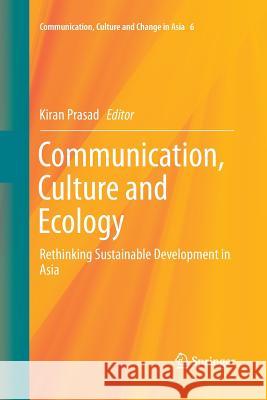Communication, Culture and Ecology: Rethinking Sustainable Development in Asia » książka
topmenu
Communication, Culture and Ecology: Rethinking Sustainable Development in Asia
ISBN-13: 9789811349966 / Angielski / Miękka / 2018 / 199 str.
Kategorie:
Kategorie BISAC:
Wydawca:
Springer
Seria wydawnicza:
Język:
Angielski
ISBN-13:
9789811349966
Rok wydania:
2018
Wydanie:
Softcover Repri
Ilość stron:
199
Waga:
0.30 kg
Wymiary:
23.39 x 15.6 x 1.14
Oprawa:
Miękka
Wolumenów:
01
Dodatkowe informacje:
Wydanie ilustrowane











